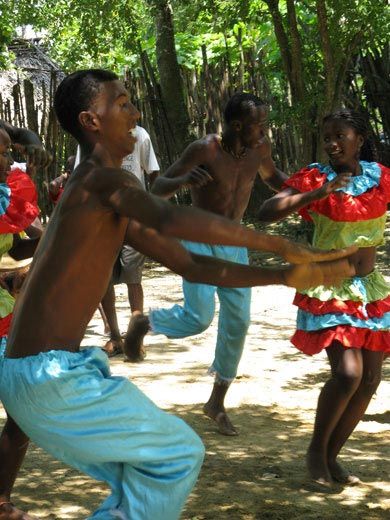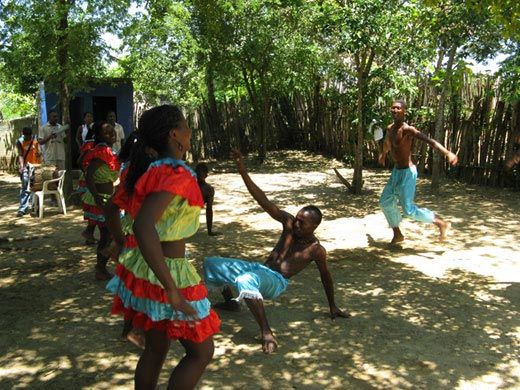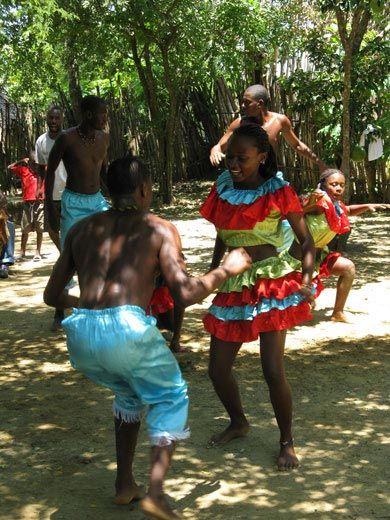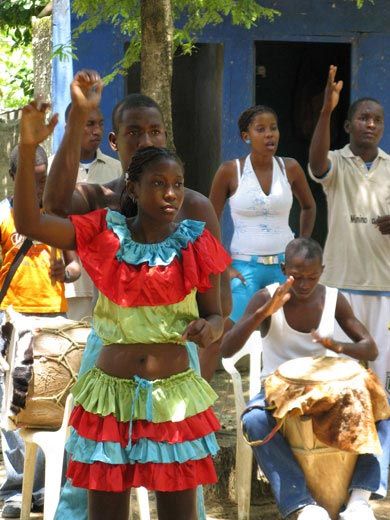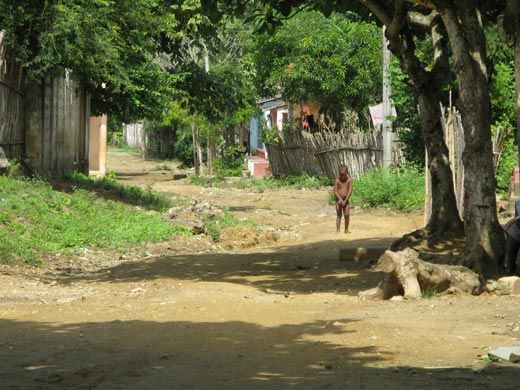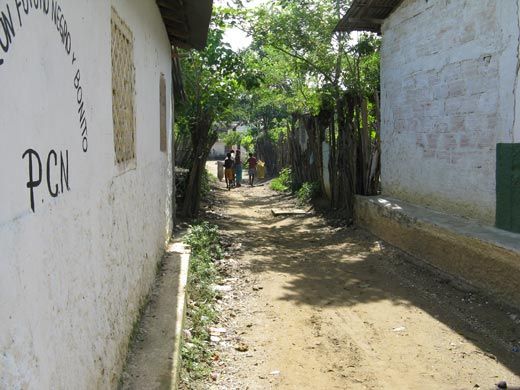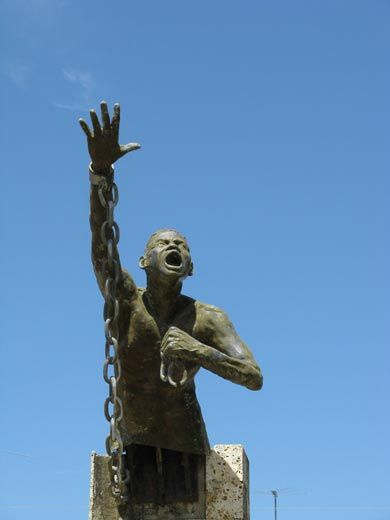Colombia Dispatch 4: Palenque: An Afro-Colombian Community
Four hundred years ago, escaped slaves formed Palenque. Today, the Colombian town celebrates its African roots
/https://tf-cmsv2-smithsonianmag-media.s3.amazonaws.com/filer/palenque_631.jpg)
Centuries ago, escaped slaves built isolated forts in the jungles that surround Cartagena, once Colombia's main port for incoming slaves. Today, the Afro-Colombian inhabitants of San Basilio de Palenque, a village just over an hour from Cartagena, have preserved many of the customs of their African ancestors.
I wander around the dusty streets and of the small town on a scorching hot day, listening to residents speaking a local Creole tongue. A mixture of African languages with Spanish and Portuguese, it sounds a lot like the Bantu languages of central Africa. Although the town now has electricity and running water in most homes, locals still gather at the creek to wash clothes, chat and bathe. In the center of town there's a statue of town founder Benkos Bioho breaking out of chains. Locals say he established Palenque in 1603 with 36 other escaped slaves.
While most other strongholds for escaped slaves eventually fell, this one survived because of its isolation among the hills and swamps about 30 miles outside Cartagena. Locals claim that in 1713 the inhabitants declared it the first independent community in the Americas. Escaped slaves would head to Palenque, knowing that was their chance at freedom. But several decades ago, that same isolation led residents, called Palenqueros, to leave the village for big cities in search of work.
Today, colorfully dressed Palenquera women commute to Cartagena to sell candy and fruit on the streets, while many men work in construction and paving roads. But when Palenqueros first arrived in the cities they encountered racism and were mocked for their strange language. Out of embarrassment, many refrained from observing their traditional customs.
Near the town square, I sat down with Edwin Valdez Hernandez, a charismatic young instructor at the Batata Dance and Music School in Palenque. He tells me that in the 1980s and ‘90s a new generation of young, educated Palenqueros fostered a resurgence in pride in the community's African roots.
"We defend our values with a shout," Valdez says. "We are black, and we are defending our culture."
He believes this pride is essential to combating the racism he says still flourishes on the Colombian coast. His friend, Enrique Marques, agrees, "If you lose your culture, you become a slave again."
The town's public school now teaches Palenque's traditional language to all students.
For the past 10 years, a group of dance enthusiasts has scraped together enough donations to run a Batata school in a small blue concrete house a few blocks from the town center. Valdez says the school's 150 students, from elementary school age to teenagers, meet Monday through Friday afternoons to practice Palenque's traditional dances, passed down through the centuries from Africa. They've performed at festivals across the country, including Palenque's famous yearly drum festival in October. I walk down to the school with Valdez and a dozen of his students and head out into the hot dirt courtyard where they practice. Students pound on wooden drums of all shapes and sizes while Valdez leads chants about the town's history.
Teenage boys and girls wearing yellow, blue and red costumes (Colombia's national colors) perform highly charged dances inspired by their African roots. At the end of the 10-minute song, sweat drips off everyone and dust covers the dancers. I shake their hands as they file out. Determined to keep his culture alive, Valdez yells out toward them with the command of a football coach as they leave.
"I want everybody back here for practice at 5:30 sharp."
Planning Your Next Trip?
Explore great travel deals
Smithsonian magazine participates in affiliate link advertising programs. If you purchase an item through these links, we receive a commission.
